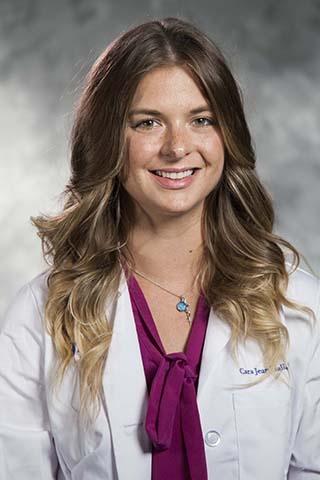“We’re burned out about talking about burnout.”
This seemed to be the sentiment of my fourth-year medical school class as we spent the last month of our training in a course called “Successful Interning,” where we learned tips and tricks — both medical and personal — on how to survive our first year of residency.
But I wondered why the goal is always survival? We chose this career and presumably chose it while already knowing many of the hardships that come with it. Though the job of being a resident is daunting, so much of our culture places emphasis on the long hours and grueling lifestyle that we begin to lose sight of the rest of medicine. We become hyper-focused on the grind of working and the grind itself starts to become a competition.
In residency, we are no longer being graded against one another like we were in medical school, yet we can still feel the need to be the best. But what does "being the best" truly mean? Within the medical community, we have been subjected to the colleague bragging about the 48-hour shift she just worked or the 10-hour surgery he scrubbed where he didn’t eat or use the restroom once. I’ve even been told to drink less water throughout the day so that I wouldn’t have to break from clinic flow to use the bathroom.
There is an emphasis on quantity of hours worked and the number of patients seen to determine how far (and often times thin) we can stretch ourselves. What’s lacking is the discussion about the quality of patient care provided. Why are residents not talking about shaping lives and improving patient outcomes? Additionally, in the midst of these long days and poor nutrition, we are expected to avoid burnout through self-reflection and guided mediation that are not within the infrastructure of residency. These self-care measures are another check box on our to-do list and sometimes feel like a burden rather than a relief.
The countless burnout lectures I received in medical school addressed the individual need to take care of oneself. We are told to sleep more, eat better, find time for exercise, and spend time with loved ones. With only so many hours in a day, each resident must choose how to balance medicine with personal wellness. Highly succeeding in one domain means letting the other fall short. The talk of burnout has not really acknowledged the inability to “do it all” and do it all well. On a larger scale, burnout education has failed to address the larger system issues within medicine that lead to burnout in the first place.
The paradigm needs to shift from an individual responsibility to wellness to a combined individual and systems approach. I have seen examples of this in my own residency program ranging from walking outside, bringing in healthy snacks, or simply checking in with medical team members to see if everyone feels supported. If the medical community as a whole begins to focus on the positive aspects of medicine rather than the grind, then perhaps burnout would not be so daunting. If wellness is better integrated within residency programs, the art of being well may not feel so cumbersome. Conversations may switch from complaining about hours to talking about how great it is that our program has started to provide healthier lunch options or scheduled wellness time. Personal wellness should not be a chore but rather an individual right. However, this requires both an individual effort to find time for personal care as well as institutional changes that make this more of a priority.
I often feel as though I am just waiting for burnout to happen, as many of my predecessors seem jaded and have warned me that like winter, burnout is coming. I want to do more than survive intern year. I want to enjoy it. I know it is going to be difficult and I will not always be happy, but I also know that I am going to learn more than ever imaginable and help people in the process, and nothing is more rewarding.
In addition to our institutions incorporating wellness within the curriculum, we as residents, still need to find the little things that make us happy and do them even when we are tired. Most importantly, we need to talk about them and talk about our positive patient experiences, just as we talked about our long grueling call days. Finding this balance will not only make us better rounded and happier, but will ultimately result in better care to our patients and our colleagues.
Residency thus far has been exciting, challenging but doable, and gratifying. The meaningful interactions with my patients and my colleagues has made me happier than I thought was possible as an intern, and this is something I want to talk about.
Cara Hall is a first-year resident with the Duke Family Medicine Residency Program. Email cara.hall@duke.edu with questions.
Editor’s note: Duke Family Medicine residents guest blog every month. Blogs represent the opinion of the author, not the Duke Family Medicine Residency Program, the Department of Community and Family Medicine or Duke University.
